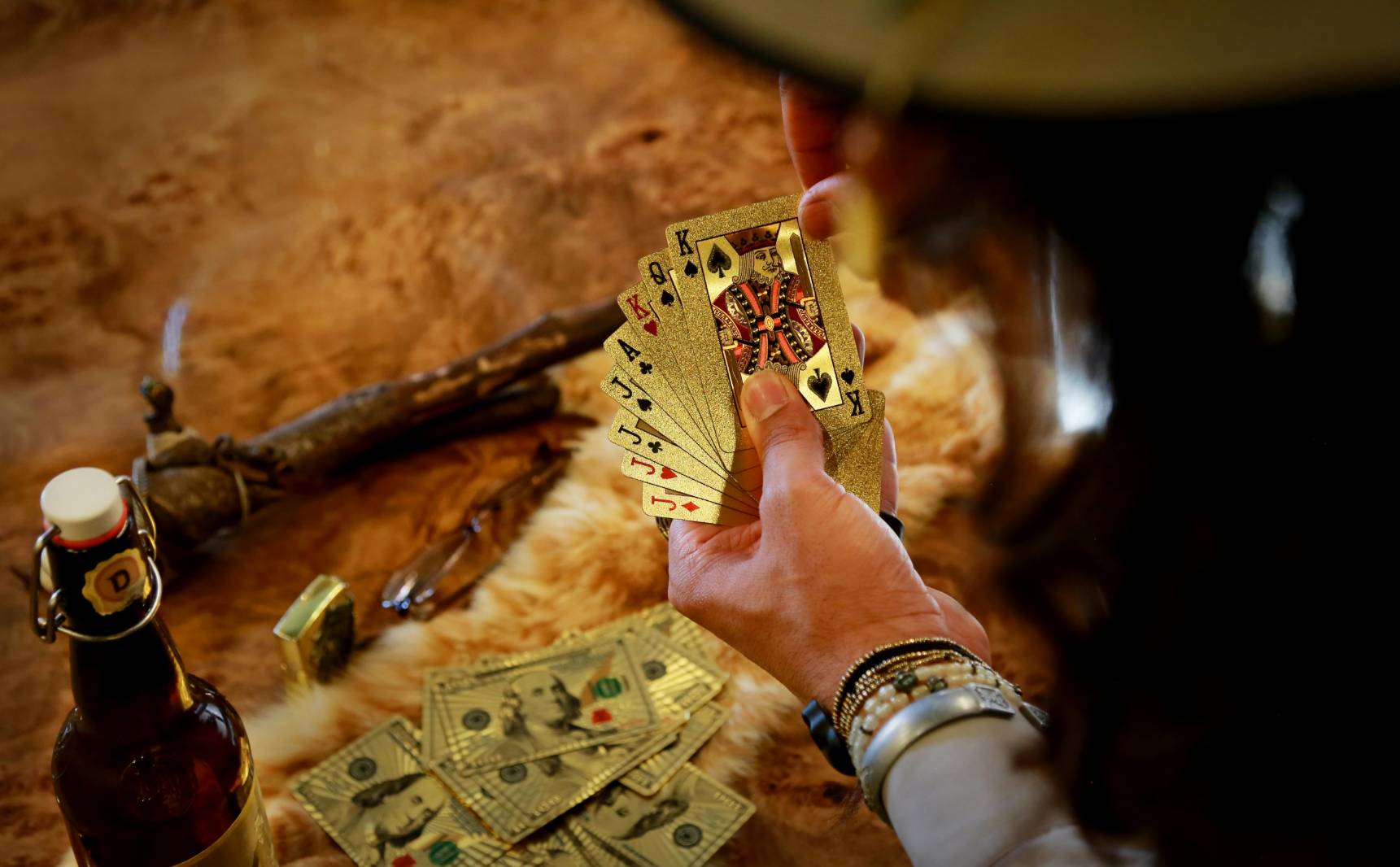
***Boosting State Tax Revenues
By Rahul Sharma · 08 Oct 2025
Casinos in the United States have grown from small entertainment venues into powerful engines of economic activity. By 2025, the casino industry has become an essential part of many state economies, driving job creation, tourism, tax revenues, and local development. While opinions on gambling vary, there is no denying that casinos play a major role in shaping the economic landscape of the U.S.
Job Creation and Employment OpportunitiesOne of the most direct economic benefits of casinos is employment. From dealers, waitstaff, and hotel managers to entertainers and security personnel, casinos employ tens of thousands of people across the country. In states like Nevada and New Jersey, casinos are among the largest private employers, offering steady jobs with competitive salaries. By 2025, the expansion of online and tribal casinos has also created opportunities in technology, marketing, and digital operations, broadening the scope of employment.
Boosting State Tax RevenuesCasinos generate billions in tax revenue for U.S. states every year. These funds are often directed toward public services such as education, infrastructure, and healthcare. For example, states like Pennsylvania and Michigan have used casino tax revenue to strengthen public school funding, while Nevada reinvests heavily into tourism promotion. In 2025, as more states legalize online gambling, digital casinos are becoming another important source of tax income, further fueling state budgets.
Casinos act as magnets for tourism, drawing visitors from around the world. Las Vegas remains the prime example, with millions of tourists visiting each year not only to gamble but also to enjoy concerts, dining, shopping, and nightlife. Atlantic City, Connecticut’s Mohegan Sun, and tribal casinos across the Midwest and Southwest have all transformed their regions into tourist hubs. By 2025, casinos have expanded beyond gaming to include luxury resorts, spas, and entertainment venues, making them multi-dimensional tourism drivers.
The economic impact of casinos extends beyond the casino floor. Local restaurants, shops, and service providers often benefit from increased traffic generated by casino visitors. Construction companies, suppliers, and event planners are also tied to casino growth. In many states, casinos serve as anchors for broader economic development, encouraging investments in transportation, real estate, and hospitality.
The Role of Tribal CasinosTribal casinos have become especially influential in the U.S. economy. Since the passage of the Indian Gaming Regulatory Act in 1988, tribal casinos have provided economic empowerment to Native American communities. By 2025, many tribes operate large-scale casino resorts that generate billions in revenue, funding healthcare, housing, and education for tribal members. These casinos not only create jobs within Native communities but also contribute significantly to surrounding state economies.
Online Gambling and the Digital ShiftThe legalization of online gambling has added a new dimension to the casino economy. States like New Jersey, Pennsylvania, and Michigan have embraced digital platforms, creating new revenue streams. Online casinos provide jobs in technology, customer service, and software development, while also appealing to younger, tech-savvy players. By 2025, the digital casino market is estimated to be a multi-billion-dollar industry, complementing traditional land-based casinos rather than replacing them.
Challenges and Social CostsWhile casinos bring undeniable economic benefits, they also raise concerns. Critics point to issues like problem gambling, economic dependence on tourism, and increased competition that can hurt small businesses. Some regions worry about the volatility of casino revenue, particularly when economic downturns or global events affect tourism. States are increasingly investing in responsible gambling programs and regulatory measures to balance economic gains with social responsibility.
Regional Differences in ImpactThe economic impact of casinos varies significantly by state. In Nevada, the industry is central to the economy, accounting for a massive share of state revenues and employment. In contrast, states like Massachusetts or Ohio treat casinos as supplementary industries that support tourism and entertainment. Tribal casinos, meanwhile, serve as both community lifelines and regional economic engines. By 2025, the growth of casinos in states like Arkansas, Virginia, and Illinois has shown that even smaller markets can benefit significantly.
Looking ahead, casinos in the U.S. are likely to expand further into digital spaces, luxury tourism, and integrated resort development. States that embrace innovation will continue to reap significant economic rewards. However, balancing economic growth with social responsibility will remain critical. As casinos adapt to new technology and changing demographics, their role in the U.S. economy will only become more complex and significant.
ConclusionThe economic impact of casinos on U.S. states is both vast and multifaceted. They provide jobs, generate tax revenue, fuel tourism, and support local businesses. Tribal casinos bring empowerment to Native communities, while online platforms are creating entirely new markets. Despite challenges and debates, casinos remain one of the most dynamic contributors to state economies. By 2025, their influence is undeniable, shaping not just the gaming industry but the broader economic fabric of the United States.
Subscribe to our newsletter to get our newest articles instantly!

Senior Contributor
Rahul Sharma is passionate about impactful storytelling. With a unique voice and deep insights, they turn everyday stories into compelling reads that resonate and inform.
Read Full Bio
The online casino industry has always embraced technology to enhance player experiences, and the future of online roulette looks particularly exciting with the integration of Virtual Reality (VR) and Artificial Intelligence (AI). These cutting-edge innovations are set to transform the way players interact with the game, creating immersive, personalized, and highly engaging environments that were once unimaginable.***Virtual Reality: Immersive Roulette ExperiencesVR technology allows players to step into a virtual casino from anywhere in the world. Using VR headsets, players can walk around realistic casino environments, approach roulette tables, and interact with live dealers and other players in real time. This level of immersion makes the online experience feel as authentic as visiting a physical casino, bringing the sights and sounds of the wheel to life. VR also opens possibilities for themed roulette tables, adding creativity and excitement to traditional gameplay.***Artificial Intelligence: Personalized and Smarter GamingAI is transforming online roulette by analyzing player behavior and preferences to offer personalized experiences. For example, AI can suggest betting strategies, identify patterns in gameplay, and provide tailored recommendations to enhance engagement. Moreover, AI-driven chatbots and virtual dealers can interact naturally with players, creating a more dynamic and responsive gaming environment. This integration ensures that the game adapts to individual players, making each session unique and engaging.***Benefits for Players and CasinosFor players, VR and AI offer heightened realism, interactive gameplay, and personalized guidance that can improve enjoyment and learning. For casinos, these technologies attract new audiences, increase engagement, and provide valuable insights into player behavior. Together, they create a more captivating and intelligent ecosystem that benefits both sides.***Challenges and ConsiderationsDespite the excitement, integrating VR and AI comes with challenges. VR requires powerful hardware and stable internet connections, which can limit accessibility for some players. AI systems must balance personalization with fairness, ensuring that player experience enhancements do not compromise game integrity. Developers also need to address privacy concerns when analyzing player data to maintain trust.***The Road AheadAs technology continues to evolve, the future of online roulette will likely blend VR and AI to create experiences that are more immersive, interactive, and player-centric than ever before. We may see multi-player VR roulette rooms, AI-guided tutorials, and highly adaptive game interfaces that respond to a player’s mood and style. This technological evolution promises to redefine online gambling, making it smarter, more engaging, and increasingly realistic.***ConclusionThe fusion of VR and AI is poised to revolutionize online roulette, offering players experiences that combine the thrill of a real casino with the advantages of digital innovation. As these technologies mature, online roulette will become more immersive, interactive, and personalized, transforming not just how we play, but how we perceive the game itself. Players and casinos alike stand to benefit from this exciting evolution, marking a bold new era in the world of online gambling.
By Abraham Benjamin · 13 Oct 2025

Native American casinos have become one of the most powerful and influential forces in the U.S. gambling industry. Once limited to Nevada and New Jersey, large-scale gaming is now spread across dozens of states thanks to the rise of tribal casinos. What started as small bingo halls in the late 20th century has transformed into a multi-billion-dollar enterprise that fuels local economies, empowers sovereign nations, and reshapes the American gaming landscape.***The Origins of Tribal GamingNative American gaming began modestly in the 1970s and 1980s, when tribes sought ways to generate revenue independent of federal and state governments. Early operations were often small bingo halls or card rooms. These ventures quickly became popular, sparking debates between state governments and tribes over the legality of such establishments. The push for recognition of tribal sovereignty became the foundation for the modern tribal casino industry.***The Indian Gaming Regulatory Act of 1988The turning point came in 1988 with the passage of the Indian Gaming Regulatory Act (IGRA). This landmark legislation granted federally recognized tribes the right to operate casinos on their lands, provided they reached agreements (compacts) with their state governments. The IGRA created a regulatory framework for Class I, Class II, and Class III gaming, with Class III covering full-scale casino gambling such as slot machines and table games. This law transformed tribal gaming into a legitimate and regulated industry.***The Growth of a Billion-Dollar IndustryFollowing IGRA, Native American casinos expanded rapidly. By the 1990s, tribal gaming revenues soared into the billions, rivaling commercial casinos in Las Vegas and Atlantic City. Today, more than 500 tribal casinos operate in over 30 states, generating tens of billions of dollars annually. These revenues not only support tribal communities but also contribute significantly to state economies through revenue-sharing agreements.***Iconic Tribal CasinosSome of the largest and most successful casinos in the United States are tribal-owned. Foxwoods Resort Casino in Connecticut, one of the first mega-tribal casinos, once held the title of the world’s largest casino. Mohegan Sun, also in Connecticut, remains a global gaming and entertainment destination. On the West Coast, casinos such as Pechanga in California and Tulalip in Washington have become major hubs, attracting millions of visitors each year. These establishments rival, and in some cases surpass, the luxury and scale of Las Vegas resorts.***Economic Impact on Tribal CommunitiesThe revenue generated from Native American casinos has transformed tribal communities. Funds are often used to improve education, healthcare, infrastructure, and housing within reservations. For many tribes, casinos provide a pathway to financial independence, reducing reliance on federal aid. Jobs created by casinos also extend beyond tribal members, benefiting surrounding communities and boosting regional economies.***Legal Battles and ControversiesThe success of tribal casinos has not come without challenges. Legal battles over sovereignty, taxation, and state regulation have persisted for decades. Some critics argue that casinos create social problems such as gambling addiction, while others question whether all tribal members benefit equally from revenues. Despite these debates, courts have consistently upheld the right of tribes to operate casinos as sovereign nations.***Competition with Commercial CasinosAs tribal casinos grew, they began competing directly with commercial gaming hubs like Las Vegas and Atlantic City. In many states, tribal casinos are now the primary gambling destinations, attracting both locals and tourists. Their success forced commercial operators to innovate, leading to the rise of mega-resorts, luxury amenities, and integrated entertainment complexes. In this way, tribal casinos reshaped the entire U.S. gaming industry.***The Role of Online and Sports BettingIn recent years, tribal casinos have begun exploring online gaming and sports betting. While laws vary by state, tribes are increasingly negotiating for the right to offer digital gambling platforms. This expansion represents the next frontier in tribal gaming, ensuring that Native American casinos remain competitive in an evolving industry.***Cultural Significance of Tribal GamingBeyond economics, tribal casinos carry cultural significance. They represent sovereignty, resilience, and self-determination for Native nations that have faced centuries of challenges. Tribal gaming is not just about profit—it is also about preserving heritage, funding cultural programs, and supporting the long-term survival of Native communities.***ConclusionNative American casinos are a billion-dollar industry that reshaped the U.S. gambling landscape. From modest bingo halls to massive resorts like Foxwoods and Mohegan Sun, tribal gaming has become a symbol of both economic power and cultural pride. While challenges remain, the industry continues to grow, proving that Native American casinos are not just about chance and entertainment, but about sovereignty, empowerment, and a lasting legacy within the United States.
By Samantha Lee · 04 Oct 2025

Learning the rules and strategies of American Roulette has never been easier thanks to the vast resources available online. From beginner guides to advanced tutorials, players can quickly gain knowledge and improve their gameplay.***Online Learning PlatformsVarious platforms provide structured lessons, videos, and interactive tools for learning American Roulette.Popular Resources:YouTube Tutorials: Channels offer step-by-step guides on roulette rules, betting systems, and strategies.Educational Websites: Platforms like Casino.org and Wizard of Odds provide detailed articles and calculators.Online Courses: Some websites offer paid courses covering both beginner and advanced roulette strategies.Forums and Communities: Sites like Reddit and specialized gambling forums allow players to share tips and strategies.***Learning Through Simulation and Free PlayHands-on experience is crucial. Many online casinos and apps offer free roulette tables where players can practice without financial risk.Benefits of Simulation:Risk-Free Learning: Understand betting patterns and probabilities without losing money.Strategy Testing: Experiment with different betting systems and observe outcomes.Realistic Gameplay: Free tables often simulate real roulette wheel dynamics.***Strategy Guides and SystemsLearning strategies can enhance chances of success and improve the overall gaming experience.Common Strategies Include:Martingale System: Doubling bets after losses to recover losses.Fibonacci System: Using a numerical sequence to determine bet sizes.D’Alembert System: Adjusting bets up or down by one unit after losses or wins.Combination Strategies: Mixing inside and outside bets to balance risk.***Tips for Effective Online LearningTo maximize learning, players should combine reading, watching, and practicing strategies.Tips:Start with Basics: Learn the wheel layout, bet types, and payout rules.Practice Regularly: Use free apps and simulators to build confidence.Engage with Communities: Discuss strategies and experiences with other players.Track Progress: Analyze past plays to identify strengths and weaknesses.***ConclusionOnline resources make learning American Roulette rules and strategies accessible, convenient, and interactive. By combining tutorials, free practice, and community insights, players can improve their skills, make informed betting decisions, and enjoy a more strategic roulette experience.
By Stefen · 29 Sep 2025

Modern casinos rely heavily on technology to ensure the safety and security of both their guests and assets. With millions of dollars changing hands daily and high-profile clientele frequenting these venues, security is paramount. Advanced systems and innovative solutions help casinos prevent fraud, monitor gaming areas, and maintain a safe environment for all patrons. The integration of technology has transformed casino security from a reactive approach to a proactive and intelligent system.***Surveillance Systems and AI MonitoringCasinos use state-of-the-art surveillance systems, often referred to as the "eye in the sky," to monitor every corner of the property. High-definition cameras, coupled with AI-powered monitoring, can detect suspicious behavior, track patterns, and alert security personnel in real time. AI algorithms can identify anomalies, such as unusual betting patterns or repeated attempts at cheating, allowing security teams to intervene before incidents escalate. This technology significantly reduces human error and increases the efficiency of surveillance operations.***Access Control and Biometric AuthenticationModern casinos employ advanced access control systems to restrict entry to sensitive areas such as cash rooms, high-limit gaming tables, and employee-only zones. Biometric authentication, including fingerprint and facial recognition, ensures that only authorized personnel can access these areas. This not only prevents internal theft but also streamlines employee verification processes. By combining physical security with biometric technology, casinos maintain a secure environment without disrupting guest experiences.***Cybersecurity MeasuresWith the rise of online gambling and digital payment methods, cybersecurity has become a critical component of modern casino security. Casinos protect sensitive data, such as customer financial information and gaming records, through encrypted networks and multi-layered firewalls. Regular security audits, intrusion detection systems, and continuous monitoring help prevent cyberattacks. Protecting both digital and physical assets ensures that casinos maintain trust and integrity among their patrons.***Fraud Detection and Gaming AnalyticsTechnology enables casinos to track and analyze gaming patterns to detect potential fraud. Advanced software can monitor card games, roulette, and slot machines to identify irregularities or cheating attempts. By analyzing large volumes of data, casinos can predict suspicious behavior and act proactively. This reduces losses and maintains a fair playing environment for all guests, reinforcing the credibility of the casino.***Emergency Response SystemsModern casinos also incorporate technology to enhance emergency preparedness. Advanced communication networks, alarm systems, and real-time monitoring ensure quick responses to fires, medical emergencies, or security breaches. Some casinos integrate AI-driven crowd management systems to guide guests safely during evacuations. By combining technology with trained personnel, casinos can respond efficiently to emergencies, minimizing risk and ensuring guest safety.***ConclusionTechnology plays a vital role in the modern casino industry by providing comprehensive security solutions that protect assets, prevent fraud, and ensure guest safety. From AI-powered surveillance and biometric access controls to cybersecurity measures and gaming analytics, these innovations allow casinos to maintain secure and fair environments. As technology continues to advance, casinos will increasingly rely on intelligent systems to enhance both safety and the overall guest experience.
By Stefen · 12 Oct 2025